第14章
And whether to inquire diligently into the meaning of terms and the proof of propositions,not excepting against anything without assigning a reason,nor affecting to mistake the signification of words,or stick at an expression where the sense was clear,but considering the subject in all lights,sincerely endeavouring to find out any sense or meaning whatsoever,candidly setting forth what seems obscure and what fallacious,and calling upon those who profess the knowledge of such matters to explain them;whether,I say,such a proceeding can be justly called cavilling?Whether there be an ipse dixit erected?And if so,when,where,by whom,and upon what authority?
Whether,even where authority was to take place,one might not hope the mathematics,at least,would be excepted?Whether the chief end,in making mathematics so considerable a part of academical education,be not to form in the minds of young students habits of just and exact reasoning?And whether the study of abstruse and subtle matters can conduce to this end,unless they are well understood,examined and sifted to the bottom?Whether,therefore,the bringing geometrical demonstrations to the severest test of reason should be reckoned a discouragement to the studies of any learned society?Whether,to separate the clear parts of things from the obscure,to distinguish the real principles whereon truths rest,and whence they are derived,and to proportion the just measures of assent according to the various degrees of evidence,be a useless or unworthy undertaking?
Whether the making more of an argument than it will bear,and placing it in an undue rank of evidence,be not the likely way to disparage it?Whether it may not be of some use,to provoke and stir up the learned professors to explain a part of mathematical learning which is acknowledged to be most profound,difficult,and obscure,and at the same time set forth by Philalethes and many others as the greatest instance that has ever been given of the extent of human abilities?Whether,for the sake of a great man's discoveries,we must adopt his errors?Lastly,whether in an age wherein all other principles are canvassed with the utmost freedom,the principles of Fluxions are to be alone excepted?An Appendix concerning Mr.Walton's Vindication of Sir Isaac Newton's Principles of Fluxions.1.I had no sooner considered the performance of'Philalethes,'but Mr.Walton's'Vindication of Fluxions'was put into my hands.As this Dublin professor gleans after the'Cantabrigian,'only endeavouring to translate a few passages from Sir Isaac Newton's'Principia,'and enlarge on a hint or two of'Philalethes,'he deserves no particular notice.It may suffice to advertise the reader that the foregoing'Defence'contains a full and explicit answer to Mr.Walton,as he will find,if he thinks it worth his pains to read what this gentleman hath written,and compare it therewith:particularly with sect.18,20,30,32-36,43.It is not,I am sure,worth mine to repeat the same things,or confute the same notions twice over,in mere regard to a writer who hath copied even the manners of'Philalethes,'and whom in answering the other I have,if I am not much mistaken sufficiently answered.
2.Mr.Walton touches on the same points that the other had touched upon before him.He pursues a hint which the other had given [`Philalethes,'p.32.]about Sir Isaac's first section concerning the rationes primae et ultimae .He discreetly avoids,like the other,to say one syllable of second,third,or fourth fluxions,and of divers other points mentioned in the'Analyst,'about all which I observe in him a most prudent and profound silence.And yet he very modestly gives his reader to understand that he is able to clear up all difficulties and objections that have ever been made (p.5).Mr.Walton,in the beginning,like'Philalethes,'from a particular case makes a general inference;supposing that Infidelity to be imputed to mathematicians in general which I suppose only in the person to whom the'Analyst'was addressed,and certain other persons of the same mind with him.Whether this extraordinary way of reasoning be the cause or effect of his passion,I know not:but before I had got to the end of his'Vindication,'I ceased to be surprised at his logic and his temper in the beginning.The double error,which in the'Analyst'was plainly meant to belong to others,he with'Philalethes'(whose very oversight he adopts)supposeth to have been ascribed to Sir Isaac Newton (p.36).